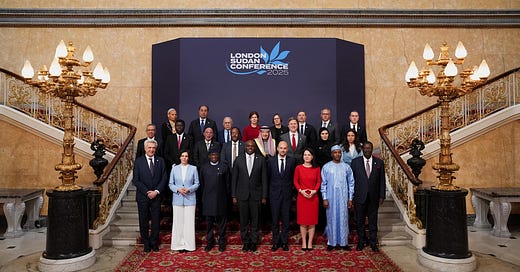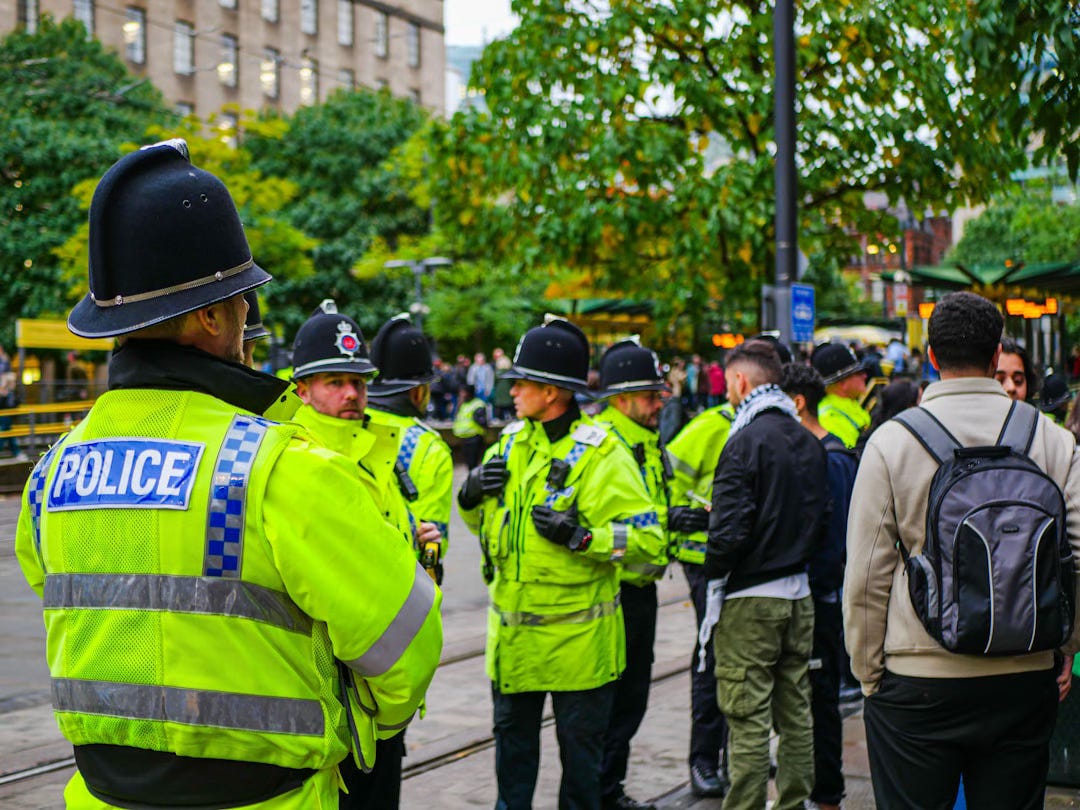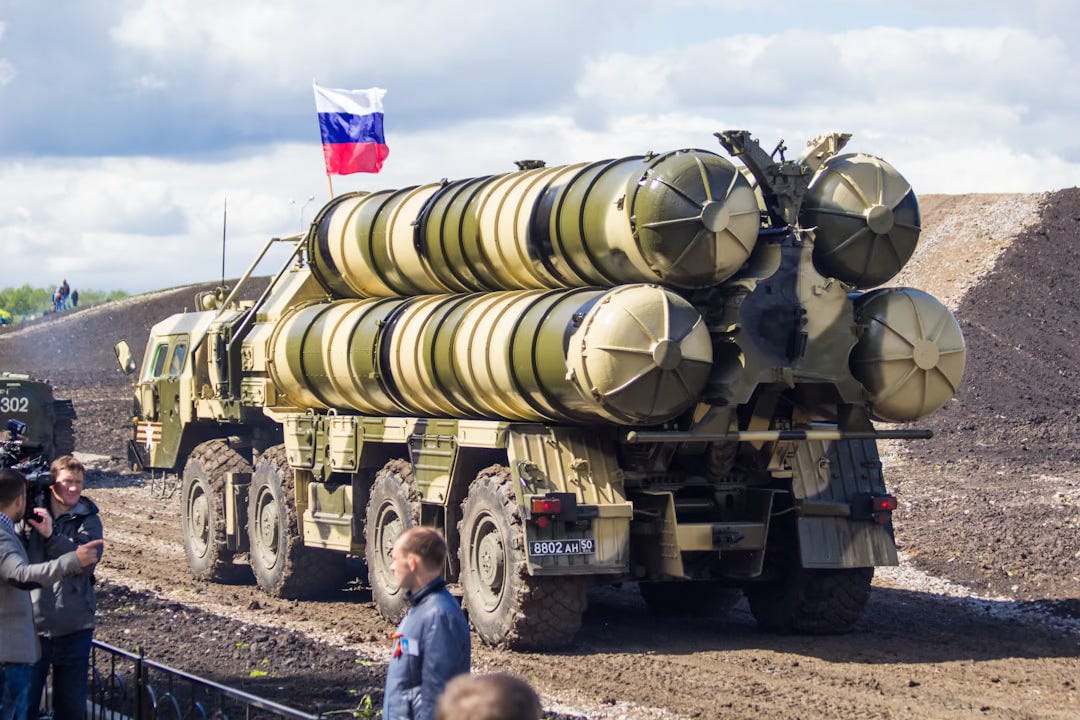
The UK announced a further £120 million in aid for Sudan today, as the world marked a sombre two year anniversary of the country’s devastating civil war that has prompted a humanitarian crisis of staggering proportions.
Britain’s top diplomat, David Lammy, hosted foreign ministers from the African Union, the EU, France, Germany, Egypt, Kenya, the UAE and more in London today, for an international conference attempting to unlock progress towards a ceasefire in what has been labelled a “forgotten conflict”.
That it could have acquired such a label is a damning indictment to the rest of the world given the scale of the devastation: over 20,000 people in Sudan have been recorded as killed, though the true death toll is thought to be far higher, while over 13 million have been displaced, with almost four million streaming into neighbouring countries.
The violence shows no sign of abating. According to the UN, at least 300 civilians were killed by Sudan’s paramilitary Rapid Support Forces (RSF) in the western Darfur region over the weekend, after it went on a rampage at two refugee camps which shelter some 700,000 Sudanese who were forced to flee their homes.
The civil war erupted on 15 April 2023, amid a power struggle between the head of the military government, Gen. Abdel-Fattah Burhan, and RSF commander, Mohammed Hamdan Dagalo. The two are former allies in suppressing Sudan’s movement for democracy who have since turned on each other.
Both sides stand accused of committing atrocities and war crimes.
RSF fighters have drawn especially strong condemnation for their violent attacks on villages in Darfur, where they have carried out mass killings and grave acts of sexual violence. Children younger than five are among the victims reportedly raped at gunpoint by members of the Rapid Support Forces.
Today, lawyers acting for Sudanese victims submitted a 141-page dossier outlining alleged war crimes committed by the RSF to the UK police's special war crimes unit, with a request to pass the file on to the International Criminal Court.
Last month, the Sudanese army secured a major symbolic victory after it recaptured the capital, Khartoum, from the RSF, allowing Burhan to return to the capital for the first time since the war started and declare a new government. But it has not ushered in a more peaceful era. On the contrary, the RSF has responded by consolidating its control on the areas it still controls, a vast stretch of western and southern Sudan, meaning the situation increasingly resembles a de-facto partition.
While the RSF may lack political legitimacy, Sharath Srinivasan, professor of international politics at Cambridge University, warns that “it’s easy to underplay the group’s resilience and ability to strike back”.
The RSF is not short of weapons and resources, Srinivasan adds, given the support it enjoys “from the UAE, Chad, Uganda, Kenya, South Sudan and Ethiopia.”
When it comes to prolonging the suffering of Sudanese civilians, one of the biggest problems is that neither side appears able to defeat the other.
The UN Security Council has failed to implement a comprehensive arms embargo on Sudan to halt the constant flow of weapons to either or both sides.
While Lammy’s conference in London today purports to be an attempt to unlock progress towards a ceasefire, are all of those present even in favour of such a measure?
It’s notable that the UAE is a country listed among the attendees.
While Abu Dhabi publicly partakes in peace negotiations alongside the UK, US and Saudi Arabia, it also stands accused of arming the RSF, charges it denies but ones that UN experts and US lawmakers have found to be credible.
Speaking previously to Reaction, Husam Mahjoub - a US citizen of Sudanese origin who runs Sudan Bukra, an independent non-profit Sudanese TV channel - lamented the fact that most western countries seem to be weighing up competing foreign policy interests and deciding that picking a fight with the UAE over Sudan is not worth the hassle.
Back in April, when Britain refused to defend the UAE after Sudan’s UN representative accused it of supporting the RSF, the UAE punished Britain by cancelling four scheduled meetings with UK ministers.
It’s unclear how much pressure, if any, Lammy will have applied on the UAE behind closed doors today.
Amnesty International has described today as a day of shame:
“Shame on the perpetrators on both sides of this terrible conflict who have inflicted unimaginable suffering on civilians. Shame on the world for turning away while Sudan burns. Shame on the countries that continue to add fuel to the fire.”
Caitlin Allen
Deputy Editor
ON REACTION TODAY
Gerald Warner
Britain’s police are out-of-control two-tier tyrants
James Rose
An expansion of the nuclear club would endanger us all
ALSO KNOW
Markets rally following JD Vance’s comments on UK - The FTSE 100 rose by 1.1 per cent today after the US vice-president boosted hopes of a UK-US trade deal, by telling UnHerd that there was a “good chance” the two countries would strike a “great agreement” in the coming months. “There’s a real cultural affinity. Fundamentally, America is an Anglo country”, said Vance, who also pointed to Donald Trump’s admiration for Britain’s monarchy.
Trump takes revenge on Harvard - The Trump administration has said it is freezing more than $2bn in federal funds for Harvard University after it rejected a list of demands from the White House, allegedly designed to fight antisemitism on campus, which include changes to hiring, admissions and teaching and measures such as Harvard agreeing to report students who are "hostile" to American values to the federal government. Harvard President Alan Garber said that the university will not surrender its independence or relinquish its constitutional rights under the First Amendment protecting free speech.
Iran confirms second round of nuclear talks with US - Tehran and Washington are due to meet again in Oman on Saturday, a week after top officials held the highest-level talks since the landmark 2015 nuclear accord collapsed. Iran's supreme leader, Ayatollah Ali Khamenei, said today that last Saturday’s talks were "well carried out in the first steps", but he added that "the negotiations may or may not yield results".
Gaza ceasefire deadlock - Hamas has reportedly rejected a new Israeli proposal for a six-week ceasefire in Gaza on the grounds that it called for the armed group to give up its weapons but gave no commitment to end the war or pull Israeli troops out of the strip in exchange for releasing Israeli hostages.
FIVE THINGS
Air force pilots were the first to condemn the Israeli leadership’s return to war. Paratroopers, tank corps reservists, physicians and former Mossad members have followed, reports The Washington Post
The Taliban banned Afghan girls from school. Low-paid carpet weaving is now their lifeline, writes The BBC’s Mahjooba Nowrouzi from Kabul
“Russia wants to break us”. The Times’s Tom Ball reports from Sumy on the Ukrainians mourning victims of Moscow’s Palm Sunday strike
The constitutional crisis is here, writes Adam Serge in The Atlantic
A timeline of the most important events in quantum mechanics, in New Scientist













